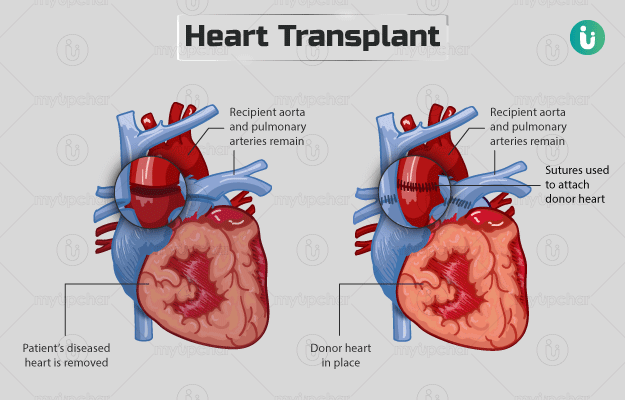Summary
A heart transplant is a surgical method to replace a failing heart with a new donor heart. A transplant surgery is the last option when all other treatment methods have failed. Some conditions in which you are considered ineligible for a transplant surgery include age over 65 years, other major health problems such as a disease of the lungs, kidneys, or any other organ, and smoking or drug abuse.
Click on the link given here, to know in detail about the treatment of heart disease.
To check for your eligibility for the procedure, the doctor will ask you to undergo multiple tests. Once the transplant team reviews your reports, you will be on the waiting list. As soon as a donor’s heart is obtained, your doctor will notify you. Your transplant surgery will mostly be conducted on the same day. After the surgery, you will be in the hospital for about one to two weeks. You will be on multiple medicines, some of which you will need to take for life. After a transplant, you need to be careful to not get any infection as your immunity will be low.
Contact your doctor if you observe any symptoms such as bleeding at the incision site or fever.
(Read More - Enlarged Heart Treatment)






















